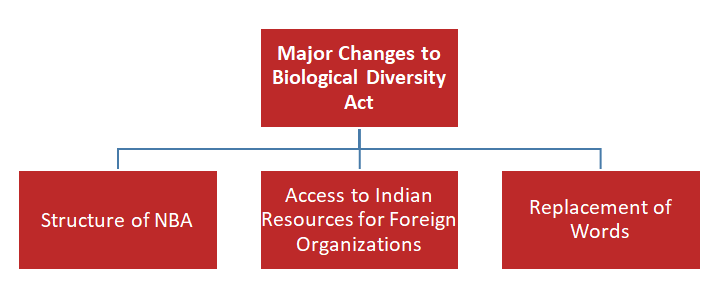IPR and National Biodiversity Authority: Guidelines for Biodiversity-Related IPR in India
The Indian Union Ministry of Environment, Forest and Climate Change recently proposed several amendments to the Biological Diversity Act, 2002. These changes aim to regulate biological diversity conservation, ensure sustainable use of components, and promote equitable benefit-sharing emerging from the use of Indian biological resources and community knowledge linked with them. The bill also impacts IPR and biodiversity in the country. For instance, as per the proposed bill, any application for intellectual property rights based on Indian biological resources, such as patent filing, must first get approval from the National Biodiversity Authority (NBA). Thus, it is critical for companies and innovators to understand the requirements for patent applications related to biodiversity.
This article discusses the Biological Diversity Act, 2002, authorities established under it, the amendment bill 2021, and also highlights various rules for IPR and biodiversity in India.
Table of Contents
The Biological Diversity Act, 2002
As India became a part of the Convention on Biological Diversity (CBD) in 2002, the Indian Parliament passed the Biological Diversity Act to meet the obligations under the convention. The main aim of the Act was to preserve biological diversity in India, promoting its sustainable use and allowing a route for fair and equitable sharing of benefits. Its objective was to drive the utmost utilization of natural resources and knowledge.
Authorities Established under the Biological Diversity Act
- The Biological Diversity Act established a three-tiered national, state, and local system.
- Biodiversity Management Committees (BMCs) were constituted locally by local self-government institutions to carry out certain sections of the Act.
- State Biodiversity Boards (SBBs) were constituted at the state level to deal with all issues connected to the Act and Rules’ implementation.
- The National Biodiversity Authority (NBA) was established at the national level to oversee the implementation of the Act and Rules.
- These structures were linked to make decisions on various issues, including access and benefit-sharing (ABS). The NBA’s patent approval process allows it to consult with appropriate State Biodiversity Boards and municipal governments and include them in any future benefit-sharing agreement.
National Biodiversity Authority
NBA is a statutory autonomous body established by the Ministry of Environment and Forests, Government of India in 2003 to implement the provisions under the Biological Diversity Act (2002). The main functions of the NBA are:
- to regulate and consider requests for undertaking activities referred to in sections 3, 4, and 6 of the Biological Diversity Act (2002),
- advise the government on biodiversity-related areas and the selection of biological heritage sites, and
- take suitable measures to oppose the grant of intellectual property rights in foreign countries, yielding from the utilization of natural resources or linked traditional knowledge derived from India.
Biological Diversity (Amendment) Bill, 2021
The Bill was proposed by the Union Ministry of Environment, Forest, and Climate Change in December 2021 to introduce several revisions to the Biological Diversity Act 2002.

- Structure of NBA: The 2002 Act called for three levels of the National Biodiversity Authority, viz. national, state, and local. While the National Biodiversity Authority functioned at the national level, State Biodiversity Boards were responsible at the state level, and Biodiversity Management Committees managed tasks at the local levels. The prominent role of the latter was to keep the information regarding the local biodiversity and related knowledge in a People’s Biodiversity Register. However, the proposed amendment states that the National Biodiversity Authority will represent the Biodiversity Management Committee and decide on fair and equitable benefit sharing.
- Access to Indian Resources for Foreign Organizations: The Bill allows foreign organizations access to the country’s resources as the amendment limits approval to foreign-controlled companies, or entities incorporated outside India. It suggests that organizations registered in India, whether managed by foreign nationals, no longer need to take the approval of the National Biodiversity Authority. Earlier, prior permission was required from the NBA to access India’s biological materials by foreign people and organizations that were not registered or incorporated in India.
- Replacement of Words: The amendment bill has replaced the words ‘biological diversity’ with ‘biological resources,’ and ‘holders of knowledge’ has been substituted with ‘holders of associated traditional knowledge.’ Here the use of the word resources implies an understanding of biodiversity, which allows the exploitation of resources. Moreover, it is also leading to a compromised understanding of the law. For instance, one of Sagacious IP’s clients received an objection for non-compliance with NBA during the patent application examination. It was a tough challenge for the inventor to understand the complaint, let alone addressing the protest. However, Sagacious IP’s team helped the inventor understand and address the objection. We also helped the client file a request, which led to the patent grant.
The next section discusses the provisions for biodiversity in the Indian IP law to help you further your understanding of IPR and biodiversity.
IPR and Biodiversity Laws in India
Various acts, such as the Biological Diversity Act, Patents Act, etc., establish the guidelines for IPR and biodiversity in India. The most important of these rules are mentioned below:
- As per Section 10 (4) (d) (ii) of the Patents Act 1970 of India, a patent application must disclose the source and geographical origin of the biological resources used during the entire experimentation of an invention. The same is generally mentioned at the very beginning of the specification. Hence, if the patent application does not disclose the source and geographical origin of a biological resource or presents false or fabricated information, this may lead the application towards the ground for opposition, and even the patents granted can be revoked.
- The violation of conditions on biodiversity under the Indian Patents Acts 1970 will result in a patent denial under Section 15. Pre-grant opposition under clauses (d), (f), and (k) of section 25(1), as well as post-grant opposition under clauses (d), (f), and (k) of section 25(2) of the Patents Act 1970, will result in the cancellation of granted patents.
- If the complete specification does not disclose or wrongly mentions the biological material source and geographical origin, then, according to clause (j) of Sections 25(1) and 25(2) respectively of the Patents Act, 1970, it will create a ground for pre and post-grant opposition.
- The patent applicant must submit a declaration under Form-1, stating “the invention as disclosed in the specification, uses the biological material from India and the necessary permission from the Competent Authority shall be submitted by me/us before the grant of patent to me/us;” to comply with the Biological Diversity Act 2002.
- Section 6 of the Biological Diversity Act prohibits grant requests for any intellectual property right in India or in a foreign country without obtaining the approval of the NBA. This rule applies to all inventions using or having information on biological materials obtained from India. Further, at the time of granting permission, NBA may pass a direction for benefit sharing or royalty based on the use of such protection.
- While approving, NBA has the authority to impose a benefit-sharing fee or royalty for commercializing any rights arising from biological resources obtained from India. Hence, the guidelines require the applicant to receive NBA clearance before a patent may be granted. If NBA approval is not obtained/submitted, a controller can file an objection in the examination report. Even if one did not raise the complaint during the examination process, it could be brought subsequently.
- Without the authorization of the NBA, one cannot give the results of a study employing biological resources from India to a non-citizen or a foreign company. However, no such approval is required for publishing the findings in a journal or seminar or for joint research conducted by Central Government-approved institutions.
- Without NBA’s consent, no one should file for a patent or other form of intellectual property protection based on research involving biological resources. While granting such a license, the NBA may impose a benefit-sharing or royalty order based on the use of such protection.
Conclusion
One should be extra meticulous while filing patent applications for innovations based on or using biodiversity. This is because such patent applications must adhere to not just one, but multiple acts and legislations by the government. The recent introduction of the Biological Diversity (Amendment) Bill, 2021 compels researchers, innovators, and companies to pay heed to all the sets of laws involved.
If you are looking to file a patent involving a biological element, then Sagacious IP’s team of experts can help you draft a compliant application to avoid office actions or rejection. Our India patent filing and prosecution service has helped scores of innovators get a patent grant in diverse fields. Visit the service page to know more.
– Shweta Sharma (IP Filing & Prosecution) and the Editorial Team
Having Queries? Contact Us Now!
"*" indicates required fields




